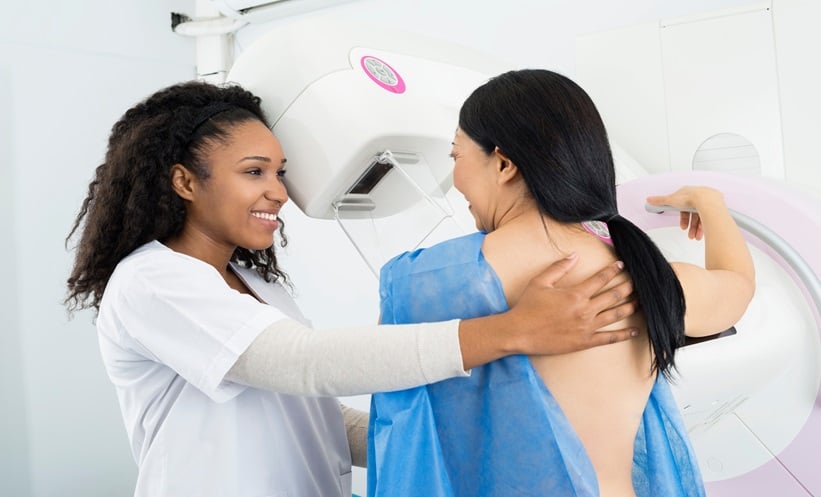ARTIFICIAL intelligence (AI) has identified novel mammographic features that are stronger predictors of breast cancer risk than traditional factors, offering new opportunities for tailored screening and prevention strategies.
Since the 1970s, mammographic density has been recognised as a significant factor in breast cancer risk and detection. Dense breast tissue, characterised by increased fibroglandular content, correlates with higher cancer risk and poses diagnostic challenges due to its masking effect on mammograms. Recent advances in AI have refined mammographic risk assessment by uncovering parenchymal patterns, or “mammographic features,” that provide more precise predictions of breast cancer than traditional measures like mammographic density or family history. In women with AI-generated risk scores exceeding a specific threshold, over 10% developed breast cancer within four years, despite a clear mammogram at screening. These findings suggest AI tools may outperform current approaches in identifying women at elevated short-term risk.
In clinical studies, AI-generated mammographic features have demonstrated a ninefold difference in risk discrimination between high-risk and low-risk women, surpassing conventional factors such as family history or polygenic risk scores. Trials such as ScreenTrustMRI have shown the utility of AI tools in detecting early malignancies undetectable by radiologist-read mammography, with MRI uncovering invasive cancers in high-risk women flagged by AI features. However, some features identified by AI may represent benign conditions or unclear biological phenomena. While mammographic density remains an important long-term risk factor, these AI features capture short-term risk with greater precision.
The integration of AI-generated features into clinical practice could revolutionise breast cancer screening. Women identified as high-risk may benefit from enhanced surveillance, including supplemental imaging or risk-reducing interventions such as tamoxifen, while lower-risk women could have extended screening intervals. Research must now focus on the pathobiology of these AI features to understand their relationship with cancer development and evaluate their response to preventive therapies. These advances represent a significant step forward in personalised breast cancer care, offering the potential to reduce mortality through earlier detection and targeted prevention strategies.
Abigail Craig, EMJ
Reference
Ingman WV et al. Artificial intelligence improves mammography-based breast cancer risk prediction. Trends Cancer. 2024: S2405-8033(24);00226-7.








